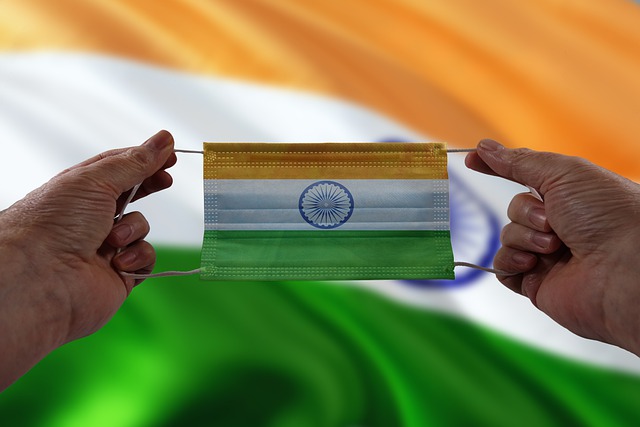Since the end of 2019, the global landscape related to the COVID-19 pandemic keeps changing. About a year ago, the United States was the epicenter of the pandemic and sadly now, India has been handed the baton.
Pregnant women have long been recognized as a vulnerable population during infectious disease pandemics. During the 1918 Spanish influenza pandemic, 50% of pregnant women who were infected died. A recent INTERCOVID multinational cohort study indicates COVID-19 in pregnancy is associated with substantial increases in severe maternal morbidity and mortality.
Researchers currently estimate that more than 40,000 children in the United States have lost a parent to Covid-19 and that for every 13 people who die of Covid-19 in the US, one person under the age of 18 loses a parent. In India’s capital, Delhi, one person in every three has been infected with the virus, with several children under the age of 14 have lost their immediate families to COVID-19.
Mitigating the impact of the loss of a parent is not easy in any circumstance; however, it has raised more obstacles as the pandemic continues to shred each and every segment of Indian society. Engaging children battling the death of a parent, whether it be through face-to-face encounters with family, teachers, or counselors or active engagement in school has become impossible as the country remains in at least partial lockdown. In addition, bereaved children are not getting adequate supports due to economic hardship, and India’s healthcare system paralyzing due to a significant surge in Covid-19 cases.
The focus on the death toll or infection rate of any pandemic, unfortunately, eclipses the psychosocial ramifications associated with coping with the loss of a loved one and restrictions in lifestyle. Based on studies of previous epidemics, there may be a short-term decrease in suicide initially but an increase later.
Studies of natural calamities suggest a short-term decrease in suicide in the immediate aftermath of a disaster but an increase later. This is referred to as “the honeymoon period” or the “pulling together” phenomenon and has been attributed to increased social connectedness, community cohesion, and mutual support in the acute phase of a pandemic.
For example, in the early phase of the Covid-19 pandemic, the number of suicide deaths in Japan was lower than that of prior years; however, in 2020, for the first time in 11 years, suicide rates in Japan went up.
Suicide is a serious public health issue in India. Over 139 thousand deaths due to suicides were recorded in India in 2019. According to the World Health Organization estimates from 2016, India had the highest suicide rate in the South-East Asian region, pegging India’s suicide rate at 16.5 suicides per 100,000 people whereas the annual global suicide rate was 10.5 per 100 000 population.
In 2016, India accounted for 26.6% of the global suicide deaths. Without anticipating a coronavirus pandemic, the WHO earlier predicted that by 2020, roughly 20 percent of the Indian population will suffer from mental illness. In March 2020, a survey conducted by the Indian Psychiatric Society reported a 20% increase in mental illness during the nationwide lockdown. It is too early to estimate COVID-19 related suicides in India; however, the manner in which India continues to endure a deluge of dying patients, and once the pandemic is over, deal with the aftermath of economic and social devastation, it would be prudent to say that India is about to attain the boiling point of a mental health crisis.
Unlike developed nations, where the electorate actively advocates for mental health legislation, mental health is rarely mentioned in the election manifesto of any political party in India. The “Right to Life” has been interpreted by India’s Supreme Court as not just safeguarding the mere act of breathing or existing but ensuring the quality of life and human dignity. I wonder what steps India’s social service agencies are going to take to safeguard the well-being of COVID-19 orphans whose numbers keep growing exponentially.
Even with an enhanced understanding of the mind-body connection and the western world-embracing ancient Indian mindfulness and anxiety alleviating techniques, such as meditation and yoga, the Indian society’s stance towards mental health continues to be grim.
With buffers, such as India’s fabled joint family system slowly disintegrating and the pandemic-induced stress/trauma affecting a vast portion of Indian households, one needs to correct the cognitive distortions related to mental illness. A starting point would be raising awareness and desensitizing ourselves around issues surrounding mental health. One needs to start appreciating the fact that mental health and physical health are intertwined.
Poor mental health is a risk factor for chronic physical conditions and vice versa. It might become as a surprise to some but depression is the number one cause of disability worldwide and is one of the most significant contributors to the global burden of disease, greatly impacting individuals and their families mentally, physically, socially, and financially. No one is shielded from mental illness as it affects everyone no matter their race, gender, culture, age, ethnicity, or sexual orientation.
As with most things we do in life, we will always be measured in how we glean from lessons from the past. Attributing the current melancholic phase in India to lack of foresight displayed by government officials, leading to lack of beds and essential medical equipment, or leaders claiming premature “victory” over the pandemic and the susceptible population fallen prey to political rhetoric and letting their guard down, will not help ease the emotional duress faced by the loss of a loved one. Perhaps, policies need to be implemented with a sense of urgency to deal with the onslaught of mental health issues the country is facing because if unaddressed, most Indian nationals possibly run the risk of regressing to the bottommost layer of the Maslow’s pyramid of hierarchy of needs.







Recent Comments